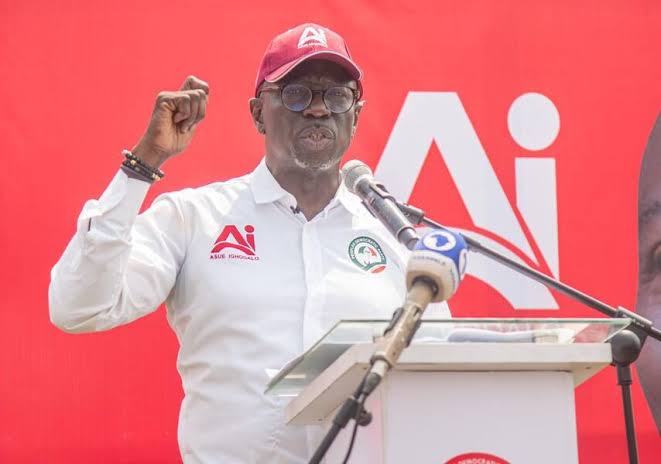The Peoples Democratic Party (PDP) candidate Asue Ighodalo has declared his intention to challenge the results in court. Speaking exclusively to our reporters, Ighodalo alleged widespread irregularities and vowed to reclaim what he termed his “stolen mandate” through the election tribunal.
As the sun rose over Edo State on September 21, 2024, voters queued at polling stations, eager to cast their ballots in the closely watched gubernatorial race. However, the day was marred by technical issues and accusations of foul play.
It was chaos at my polling unit,” said Mary Okonkwo, a 35-year-old teacher from Benin City. “The BVAS machine kept malfunctioning, and many people left in frustration without voting.”
Ighodalo’s campaign team claims that over 160 polling places experienced problems with the Bimodal Voter Accreditation System (BVAS), potentially disenfranchising thousands of voters. This technological failure became a central point of contention in the aftermath of the election.
As the day progressed, reports of vote-buying began to surface across the state. Eyewitnesses described scenes of party agents openly offering cash in exchange for votes.
“I saw people handing out crisp new notes near the voting area,” revealed John Osagie, a local shopkeeper who wished to remain anonymous. It was brazen and disappointing to see our democracy treated this way.
Ighodalo vehemently denied his party’s involvement in such practices, instead pointing fingers at the opposing All Progressives Congress (APC). “We categorically reject vote-buying,” he stated. “Our opponents, however, were offering amounts ranging from ₦25,000 to ₦50,000 per vote.”
The Independent National Electoral Commission (INEC) found itself at the center of controversy as results began to trickle in. Ighodalo accused the electoral body of colluding with the APC to subvert the will of Edo voters.
“There was a clear breach of protocol,” Ighodalo explained. Collation should progress from polling units to wards, then local government centers, and finally the state level. Instead, we witnessed an inexplicable jump from ward straight to state collation.
This alleged deviation from standard procedures has raised eyebrows among election observers and fueled suspicions of impropriety.
When the dust settled, INEC declared APC candidate Monday Okpebholo the winner with 291,667 votes. Ighodalo claimed second place with 247,274 votes, while Labour Party’s Olumide Akpata secured 22,763 votes.
Despite these official figures, Ighodalo remains convinced of his victory. “We have compelling evidence that we were the true winners of last Saturday’s election,” he asserted. The people of Edo State chose us, and we intend to honor their decision by pursuing all legal avenues to reclaim our mandate.
As Edo State grapples with post-election uncertainty, all eyes are now on the impending legal battle. Ighodalo’s legal team is reportedly gathering evidence to present before the election tribunal.
We’re meticulously documenting every irregularity,” said Barrister Emmanuel Nwoke, lead counsel for the PDP. From BVAS failures to alleged collusion between INEC and certain parties, we’re building a robust case to challenge these results.
Political analysts predict a lengthy and contentious legal process ahead. Dr. Amina Suleiman, a professor of political science at the University of Benin, commented, “Election tribunals can be unpredictable, but given the nature of the allegations, we could see this case go all the way to the Supreme Court.
The controversy surrounding the election has cast a shadow over Edo’s political future. Governor-elect Okpebholo’s attempts to extend an olive branch have been rebuffed by Ighodalo, who stated unequivocally, “There is no way you can accept these hands of fellowship or friendship when the mandate is stolen.”
This standoff threatens to deepen existing political divides in the state. Local civil society organizations are calling for calm and urging all parties to respect the legal process.
We must allow the judiciary to perform its role without interference,” said Florence Omoregie, coordinator of the Edo Civil Society Coalition. The stability of our democracy depends on peaceful resolution of electoral disputes.
As Edo State braces for a protracted legal battle, the outcome of this electoral dispute could have far-reaching consequences for Nigerian democracy. The case is likely to test the integrity of the country’s electoral system and the independence of its judiciary.
For now, the people of Edo wait with bated breath, hoping for a resolution that truly reflects their will. As one voter, 68-year-old retired civil servant James Igbinedion, put it, “All we want is for our votes to count. Is that too much to ask in a democracy?”



